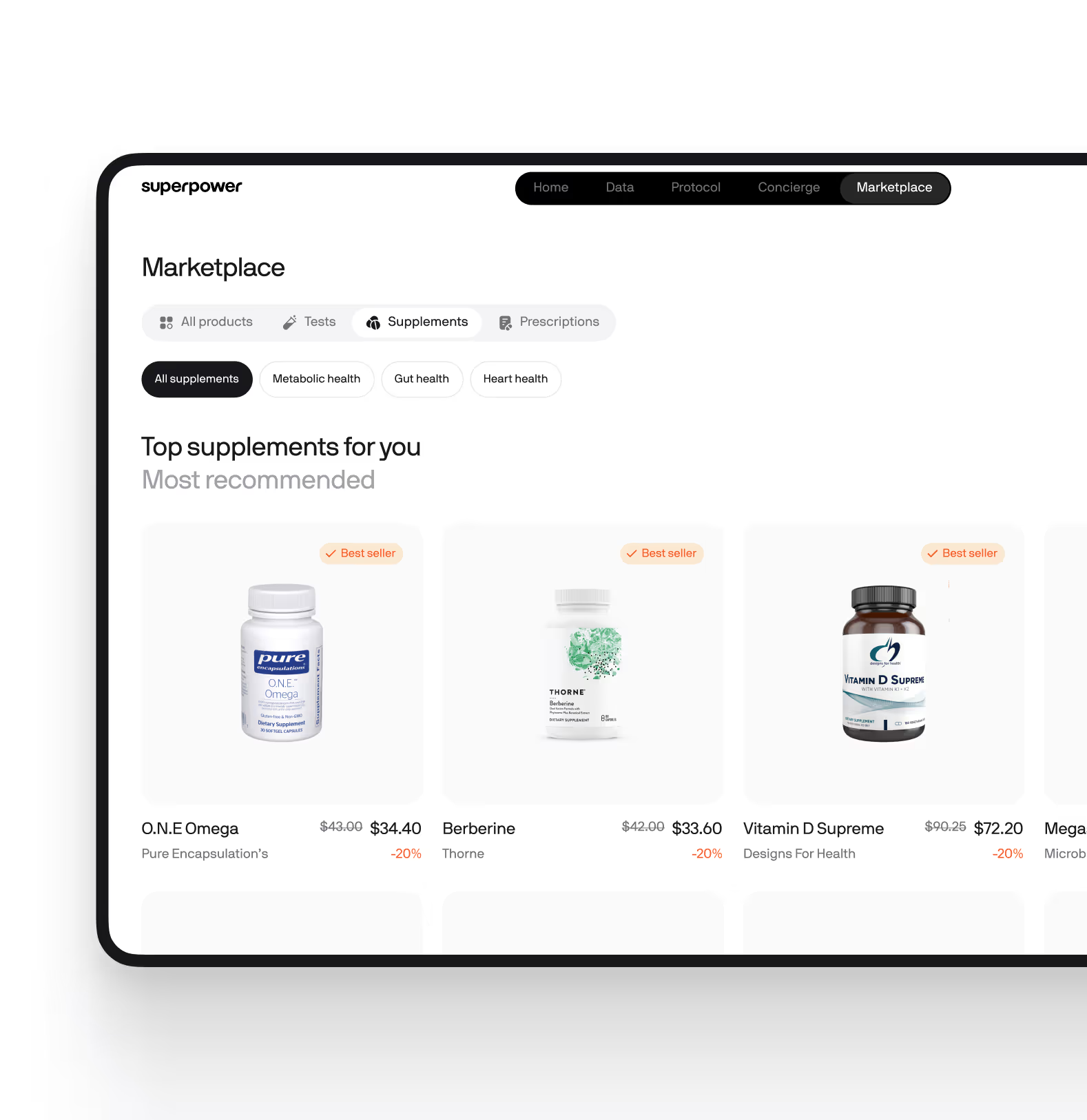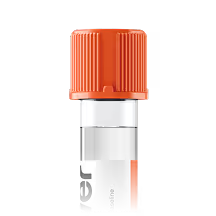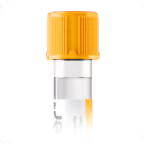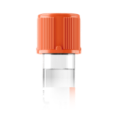Disease and Illness Testing
Your Superpower starts with 100+ lab tests. Here are the different diseases and illnesses we test for.

Testing is performed by CLIA-certified, CAP-accredited reference laboratories. Results support clinician interpretation and risk assessment and are not intended as stand-alone diagnoses or treatments. Superpower reports a mix of direct and derived biomarker metrics.
Diseases and illnesses we test
.png)
Autoimmune and Inflammatory Diseases
Cancer-linked inflammation shapes tumor behavior and host resilience. Measuring immune–blood cell balance quantifies this biology. At Superpower, we test NLR, PLR, SII, and SIRI to gauge systemic inflammatory load, immune surveillance, and prothrombotic signaling—neutrophil-lymphocyte ratio, platelet-lymphocyte ratio, systemic immune-inflammation index, and systemic inflammation response index.
Biomarker testing helps detect and track the intense systemic inflammation of Kawasaki disease—a medium-vessel vasculitis that can affect the coronary arteries. At Superpower, we measure CRP and ESR (inflammatory activity), WBC count (immune activation), and Platelets (reactive thrombocytosis), to support early recognition and risk monitoring.
Biomarker testing clarifies rheumatoid arthritis activity and systemic inflammation, guiding diagnosis and monitoring. ESR and CRP reflect acute-phase response; albumin shows protein reserve and negative acute-phase status; FAR and CAR integrate these signals into sensitive inflammation indices. At Superpower, we test ESR, CRP, Albumin, FAR, and CAR for rheumatoid arthritis.

Cancers
Early liver cancer assessment uses biomarkers of bile flow, hepatocyte injury, and synthetic capacity. At Superpower, we test Bilirubin, ALP (alkaline phosphatase), GGT (gamma‑glutamyl transferase), and Albumin for Liver Cancer assessment to track cholestasis, ductal injury, and protein synthesis, helping flag cancer‑related liver dysfunction early.
Biomarker testing illuminates how lung cancer disrupts body chemistry and stress pathways. Shifts in sodium (hyponatremia from SIADH), calcium (hypercalcemia via PTHrP), and cortisol (ectopic ACTH/Cushing) reveal tumor activity and systemic burden. At Superpower, we test Sodium, Calcium, and Cortisol to track these paraneoplastic signals for Lung Cancer.
Biomarker testing helps detect early biologic signals of ovarian disease, when symptoms are subtle. At Superpower, we track hormone balance and inflammation—Estradiol (E2), ESR, and CRP—to illuminate ovarian and systemic activity that can accompany tumor growth, progression, or benign conditions, guiding timely evaluation and surveillance.
Biomarker testing helps flag early pancreatic and biliary stress before symptoms escalate. Changes in bile flow and liver-enzyme patterns can signal obstruction from pancreatic disease. At Superpower, we test Bilirubin, ALP, and GGT to detect cholestasis and biliary obstruction—key physiologic clues in pancreatic cancer risk assessment.
Biomarker testing helps detect prostate changes early, before symptoms. PSA reflects how prostate cells are functioning and shedding protein into blood (prostate-specific antigen). At Superpower, we test for PSA Total and Free PSA to gauge cancer risk and differentiate benign enlargement or inflammation from malignant activity.

Cardiovascular and Vascular Diseases
Atherosclerosis evolves silently, driven by lipid burden and vascular inflammation. Biomarker testing clarifies arterial risk and system stress before symptoms. At Superpower, we test LDL, ApoB, Lp(a), hs-CRP, AIP, and AC to quantify particle load, inflammatory tone, and atherogenic balance—making plaque biology visible and trackable.
Biomarker testing clarifies prostate growth activity in BPH, signaling glandular enlargement and obstruction risk. PSA reflects total prostatic protein output; the free-to-total PSA ratio refines specificity, distinguishing benign hyperplasia from inflammation or cancer. At Superpower, we test PSA Total and Free PSA to map prostate physiology and monitor change.
Biomarker testing clarifies your cardiovascular risk by showing how lipids and inflammation drive plaque formation. At Superpower, we measure LDL and HDL cholesterol, ApoB, Lp(a), hs-CRP, plus composite ratios NHR and AIP, to map atherosclerotic burden and endothelial stress underlying coronary artery disease.
Biomarker testing clarifies heart failure’s impact across systems—fluid balance, kidney function, inflammation, and nutritional status. At Superpower, we test for Albumin, Sodium, Creatinine, and hs-CRP for Heart Failure to detect congestion, renal stress, systemic inflammation, and protein status (oncotic pressure), guiding earlier recognition and risk stratification.
Hypertension reflects disrupted fluid balance and vascular tone. Biomarker testing clarifies kidney–sodium handling and neurohormonal control (renin–angiotensin–aldosterone). At Superpower, we test Sodium and Potassium to assess electrolyte status influencing blood volume, arterial stiffness, and pressure regulation, linking everyday physiology to measurable drivers of elevated blood pressure.
.png)
Endocrine and Hormonal Disorders
Biomarker testing helps detect excessive growth hormone activity driving acromegaly, which enlarges soft tissues and organs. Measuring insulin-like growth factor 1 (IGF-1) reflects chronic GH exposure and flags disease burden. At Superpower, we test IGF-1 to screen and monitor acromegaly physiology.
Addison’s Disease undermines adrenal hormone production, disrupting fluid balance, blood pressure, and stress response. Biomarker testing clarifies this physiology early. At Superpower, we measure Cortisol (adrenal output), Sodium (mineralocorticoid effect), and Potassium (renal handling) to detect adrenal insufficiency patterns and guide timely evaluation.
Biomarker testing clarifies suspected Cushing’s Syndrome by detecting sustained cortisol excess that disrupts metabolism, blood pressure, and immunity (hypercortisolism). At Superpower, we test Cortisol and DHEAS to assess adrenal drive and distinguish potential sources, giving an early, systems-level view of HPA-axis dysfunction.
Biomarker testing clarifies how your growth hormone system functions—shaping energy, body composition, bone, and metabolic health. Low IGF‑1 reflects reduced GH signaling (somatotropic axis) and supports diagnosis. At Superpower, we test for IGF‑1 for GH Deficiency to understand whole‑body growth and repair.
Graves’ Disease accelerates thyroid hormone output, stressing metabolic, cardiovascular, and neurocognitive systems. Biomarker testing clarifies the axis: low TSH with high Free T4 confirms hyperthyroid physiology; TPO and thyroglobulin antibodies (TPO Ab, Tg Ab) map autoimmune activity. At Superpower, we test TSH, Free T4, TPO Ab, and Tg Ab.

Gastrointestinal and Liver Diseases
Acute blood loss stresses oxygen delivery and circulatory stability. Early lab signals reveal falling red cell mass before symptoms escalate. At Superpower, we test Hemoglobin, Hematocrit, and RBC to quantify oxygen-carrying capacity and intravascular volume shifts, distinguishing true hemorrhage from dilutional changes and guiding timely clinical assessment.
Alcoholic Liver Disease disrupts hepatocyte function, bile flow, and protein synthesis. Biomarker testing clarifies injury and reserve. At Superpower, we test for AST, ALT, GGT, Bilirubin, and Albumin to track hepatocellular damage, cholestasis, and synthetic capacity—helping map liver system health before complications.
Celiac disease damages intestinal villi, impairing nutrient absorption and provoking systemic inflammation. Biomarker testing helps reveal these effects early. At Superpower, we assess Hemoglobin and Ferritin for anemia, Folate and B12 for malabsorption, and ESR for inflammatory activity—together mapping gastrointestinal integrity and whole-body impacts.
Cholestasis signals reduced bile flow, stressing the liver and biliary system and allowing bile salts and bilirubin to build up (hepatobiliary dysfunction). Targeted biomarkers detect this early. At Superpower, we test ALP, GGT, Bilirubin Direct, and BAR for Cholestasis to map cholestatic patterns and differentiate intrahepatic from obstructive causes.
Cirrhosis disrupts liver architecture and function, affecting protein synthesis, detoxification, and portal blood flow. Biomarker testing tracks this physiology in real time. At Superpower, we measure Albumin, Total Protein, Bilirubin, Platelets, and AST/ALT to assess synthetic capacity, cholestasis, portal hypertension risk, and hepatocellular injury.
.png)
Hematological Disorders
Basophilia signals immune system activation and marrow dynamics—often from allergy, chronic inflammation, parasitic infection, or myeloproliferative disease (e.g., CML). Measuring basophils (percentage) and absolute basophil count clarifies severity and context. At Superpower, we test Basophils and Absolute Basophils to detect and monitor basophilia.
Biomarker testing helps detect Disseminated Intravascular Coagulation—a dangerous imbalance of clotting and bleeding—early and track its trajectory. It reveals systemic inflammation and consumption of blood components. At Superpower, we test Platelets, WBC, and CRP for DIC to monitor hemostasis, immune activation, and inflammatory burden.
Eosinophilia signals immune activation, often from allergies, infections, or inflammatory disease. Measuring eosinophils reveals how your innate immune system is behaving. At Superpower, we test Eosinophils and Absolute Eosinophils to quantify burden (relative percentage and absolute count) and flag clinically significant eosinophilia.
Leukemia disrupts blood cell production and immune balance. Biomarker testing flags abnormal counts, sizes, and maturation patterns that signal marrow stress or malignant clones. At Superpower, we test WBC, Neutrophils, Lymphocytes, Monocytes, and RDW for leukemia to detect leukocytosis, cytopenias, and anisocytosis—early clues to disease.
.png)
Infectious Diseases
Acute blood loss stresses oxygen delivery and circulatory stability. Early lab signals reveal falling red cell mass before symptoms escalate. At Superpower, we test Hemoglobin, Hematocrit, and RBC to quantify oxygen-carrying capacity and intravascular volume shifts, distinguishing true hemorrhage from dilutional changes and guiding timely clinical assessment.
Alcoholic Liver Disease disrupts hepatocyte function, bile flow, and protein synthesis. Biomarker testing clarifies injury and reserve. At Superpower, we test for AST, ALT, GGT, Bilirubin, and Albumin to track hepatocellular damage, cholestasis, and synthetic capacity—helping map liver system health before complications.
Biomarker testing helps detect dangerous immune overactivation in severe COVID-19. At Superpower, we test NLR, CRP, and ferritin for COVID-19 Severe. These measures capture inflammation, immune cell shifts, and iron dysregulation (neutrophil-to-lymphocyte ratio, C-reactive protein, ferritin), enabling objective risk stratification and trajectory monitoring.
Celiac disease damages intestinal villi, impairing nutrient absorption and provoking systemic inflammation. Biomarker testing helps reveal these effects early. At Superpower, we assess Hemoglobin and Ferritin for anemia, Folate and B12 for malabsorption, and ESR for inflammatory activity—together mapping gastrointestinal integrity and whole-body impacts.
Cholestasis signals reduced bile flow, stressing the liver and biliary system and allowing bile salts and bilirubin to build up (hepatobiliary dysfunction). Targeted biomarkers detect this early. At Superpower, we test ALP, GGT, Bilirubin Direct, and BAR for Cholestasis to map cholestatic patterns and differentiate intrahepatic from obstructive causes.
.png)
Metabolic and Nutritional Disorders
Anemia of chronic disease reflects inflammation that restricts iron use and blunts red cell production. At Superpower, we test for Hemoglobin, Ferritin, Iron, TIBC, % Saturation, and the CRP/Albumin Ratio to distinguish deficiency from sequestration, gauge inflammation, and quantify oxygen-carrying capacity and iron bioavailability.
Biomarker testing clarifies how anorexia nervosa is affecting core systems: protein status, fluid-electrolyte balance, and stress hormones. At Superpower, we measure Albumin, Sodium, Potassium, Chloride, and Cortisol to detect malnutrition (hypoproteinemia), electrolyte disturbances, and hypothalamic-pituitary-adrenal dysregulation, guiding safe monitoring of physiological stability.
Dehydration strains fluid balance, blood volume, and kidney blood flow. Biomarkers reveal this stress by tracking electrolyte levels and hemoconcentration. At Superpower, we test for Sodium, BUN/Creatinine ratio, and Albumin to detect water deficit and plasma concentration changes—hypernatremia, prerenal azotemia, and elevated oncotic proteins indicate volume depletion.
Biomarker testing clarifies how your body regulates sugar and insulin, revealing early metabolic stress and disease progression. At Superpower, we measure Glucose, HbA1c, eAG, and the TyG Index for Diabetes Mellitus Type 2 to assess glycemia, average exposure, insulin resistance proxies, and cardiometabolic risk.
Diabetic ketoacidosis disrupts energy metabolism and acid–base balance. Biomarker testing confirms hyperglycemia, dehydration, and electrolyte/acid-base derangements. At Superpower, we test Glucose, CO₂ (bicarbonate) to gauge acidosis, Sodium (Na) for effective osmolality, and Potassium (K) for insulin-shifted depletion or dangerous elevation—clarifying severity and guiding urgent clinical decisions.
.png)
Neurological and Mental Health Conditions
Biomarker testing helps map CFS/ME biology, turning symptoms into measurable patterns. At Superpower, we test Cortisol to gauge stress-response (HPA axis), hs-CRP for inflammation, Vitamin D for immune tone, and Albumin for protein and recovery status—all clarifying system load and guiding individualized understanding.
Chronic stress disrupts your body’s stress-response and immune balance. Biomarker testing shows how your system is coping. At Superpower, we measure Cortisol (HPA-axis activity), DHEAS (adrenal reserve/androgen balance), and hs‑CRP (systemic inflammation) to illuminate stress load, recovery capacity, and downstream physiologic strain.
Vascular dementia stems from cumulative damage to brain blood vessels. Biomarker testing clarifies vascular risk and inflammatory burden—atherosclerosis and endothelial injury. At Superpower, we test LDL, ApoB, Lp(a), and hs‑CRP for Dementia (Vascular) to quantify atherogenic lipoproteins and systemic inflammation, illuminating pathways driving cerebrovascular insufficiency and cognitive decline.
Depression often reflects whole-body changes in stress signaling, inflammation, and immune balance. Biomarkers clarify these hidden drivers. At Superpower, we test cortisol (HPA-axis activity), hs-CRP (systemic inflammation), and NLR (neutrophil-to-lymphocyte ratio) for depression, to map biology behind mood symptoms.
Sarcopenia reflects declining muscle mass and function driven by hormonal and nutritional signals. Biomarker testing clarifies the anabolic milieu and protein status. At Superpower, we test IGF-1, testosterone, and albumin for sarcopenia to gauge muscle-building capacity, endocrine balance, and systemic protein reserves, guiding early protection of strength and mobility.
.png)
Renal and Electrolyte Disorders
Acute Kidney Injury develops quickly, disrupting filtration, fluid balance, and toxin clearance. Biomarker testing confirms stress and function changes early. At Superpower, we measure creatinine, estimated glomerular filtration rate (eGFR), blood urea nitrogen (BUN), and the BUN/creatinine ratio to detect and stage AKI and monitor recovery.
Biomarker testing detects early Chronic Kidney Disease by tracking filtration, protein balance, and mineral regulation. At Superpower, we measure Creatinine, eGFR, BUN, Albumin, Corrected Calcium, and Potassium to assess glomerular function, nitrogen waste clearance, oncotic pressure, and electrolyte–bone homeostasis, revealing kidney reserve and systemic impact.
Hypercalcemia signals disrupted calcium homeostasis across parathyroid, bone, kidney, and gut. Accurate assessment requires total calcium adjusted for protein binding. At Superpower, we test for Calcium, Corrected Calcium, and Albumin for Hypercalcemia to reveal true calcium status, guide differential causes, and monitor system stress affecting mineral balance and neuromuscular function.
Hyperkalemia can silently destabilize heart rhythm and neuromuscular function by raising extracellular potassium, altering membrane excitability (serum K+). Biomarker testing detects imbalance early and signals kidney and endocrine system stress. At Superpower, we test for Potassium for Hyperkalemia to monitor electrolyte homeostasis and protect cardiovascular stability.
Hypernatremia signals disrupted water balance and cellular dehydration, reflecting kidney function and neuroendocrine control (ADH, plasma osmolality). Measuring serum sodium pinpoints severity and cause. At Superpower, we test for Sodium for Hypernatremia to gauge its impact on brain, cardiovascular, and renal systems.

Reproductive Health Issues
Female hypogonadism stems from disrupted ovarian‑pituitary signaling. Targeted biomarker testing clarifies where the axis falters and how severe it is. At Superpower, we measure LH, FSH, Estradiol, and Progesterone to map hypothalamic‑pituitary‑ovarian function and distinguish primary ovarian insufficiency from central (hypothalamic/pituitary) causes.
Female infertility often reflects disrupted hypothalamic–pituitary–ovarian–thyroid signaling. Targeted biomarker testing clarifies ovulation status, ovarian reserve, and endocrine balance. At Superpower, we test FSH, LH, Estradiol, Progesterone, Prolactin, and TSH to map cycle dynamics, identify hormone dysregulation, and inform appropriate next diagnostic steps.
Homocystinuria signals trouble processing homocysteine, affecting methylation and sulfur amino acid pathways. Biomarker testing makes this visible. At Superpower, we test Homocysteine, Folate, and B12 to pinpoint remethylation or transsulfuration defects and gauge risks for blood clots, eye, bone, and nervous system complications.
Biomarker testing for male hypogonadism clarifies whether low energy, libido, or muscle loss reflect impaired testicular production (primary) or pituitary signaling (secondary). At Superpower, we measure Testosterone, Free T, Bioavailable T, LH, and FSH to map androgen availability and hypothalamic-pituitary-gonadal axis function.
Male infertility often reflects disrupted hormonal signaling. Biomarker testing clarifies sperm-producing axis function and reveals treatable patterns. At Superpower, we measure Testosterone, Sex Hormone–Binding Globulin (SHBG), Free Androgen Index (FAI), Luteinizing Hormone (LH), and Follicle-Stimulating Hormone (FSH) to map hypothalamic–pituitary–gonadal dynamics and pinpoint where dysfunction arises.

Respiratory and Allergic Disorders
Acute stress testing shows how your body activates its alarm systems. We track cortisol to gauge HPA-axis reactivity and glucose to capture rapid metabolic shifts (glycemic response). At Superpower, we test Cortisol and Glucose for Acute Stress to reveal resilience, load, and recovery capacity in real time.
Biomarker testing helps detect and quantify alcohol’s impact on liver and blood health. Elevated enzymes indicate hepatic stress and fibrosis risk; enlarged red cells reflect marrow and nutritional effects. At Superpower, we test GGT, AST/ALT, and MCV to assess Alcohol Use Disorder physiology and track recovery.
Biomarker testing clarifies the immune activity behind allergic rhinitis. At Superpower, we measure Eosinophils to detect allergic, Th2-driven inflammation (eosinophilia) and CRP to gauge systemic inflammatory load (C-reactive protein). Together, these markers help characterize airway mucosal inflammation and distinguish allergic patterns from broader inflammatory responses.
Biomarker testing clarifies brain and vascular health long before symptoms appear, guiding risk recognition for Alzheimer’s disease. At Superpower, we measure homocysteine, vitamin B12, folate, and a lipid profile—markers linked to neuroinflammation, methylation, and cerebrovascular integrity—to illuminate pathways that influence amyloid and tau biology.
Some methods are laboratory-developed tests (LDTs) validated under CLIA but not cleared or approved by the U.S. FDA. Public claims mirror the performing laboratory’s intended-use language. Clinicians interpret results in context and may order confirmatory testing where appropriate.
Plus add-on diagnostic testing available
Access comprehensive tests well beyond mainstream healthcare limits.
Plus add-on diagnostic testing available
Access comprehensive tests well beyond mainstream healthcare limits.

Custom blood panels

Gut microbiome

Cancer screening
Developed by world-class medical professionals
Supported by the world’s top longevity clinicians and MDs.




Dr Anant Vinjamoori
Superpower Chief Longevity Officer, Harvard MD & MBA

Dr Leigh Erin Connealy
Clinician & Founder of The Centre for New Medicine

Dr Abe Malkin
Founder & Medical Director of Concierge MD

Dr Robert Lufkin
UCLA Medical Professor, NYT Bestselling Author

membership
$17

.avif)
.avif)

Superpower
Membership
.avif)
Your membership includes:
- Annual full body testing across 100+ biomarkers
- A custom action plan built on your biology and goals
- 17 health scores and your biological age
- Al Chat to dig deeper into your data
Many concierge clinics charge $10k – $100k for their services, we’ve built technology to make the world’s best healthcare as accessible as possible.
You will be able to schedule a 15 minute appointment (blocked out just for you) at one of our partner clinics. At home visits can also be scheduled for an additional fee.
- Understand your results in a beautiful dashboard
- 24/7 message access to a concierge care team, with answers within 24 hours on weekdays
- Lab draw at-home option (extra charge)
- Only one draw needed rather than two thanks to our partnership with Quest
- Discounted access to our supplement marketplace. Highly curated brands at big savings for the lifetime of your membership
- Personalized action plan
- AI chat with all of your data
No insurance needed. One flat fee, no co-pays or surprise charges. HSA/FSA cards accepted.
Superpower specializes in prevention-based testing and treatments and is not intended for emergency or immediate health issues.
While you will have a Superpower concierge, your annual membership is designed to complement a primary care doctor if you have one, not replace them.
We are happy to help you share any test results with an outside provider to ensure you receive well-rounded medical care.
Most primary care doctors aren’t trained to run this kind of advanced testing. We’ve negotiated special lab rates so we can offer 100+ tests at a fraction of the usual cost — often 1/4th the price.
The Superpower Baseline Panel is already comprehensive.
It covers 10 times more biomarkers than a typical annual physical.
The Advanced Panel is designed to go deeper, with three scenarios in particular.
- Uncovering risks that don’t show up in standard labs
Markers like Lp(a), LDL lipoprotein fractionation help identify cardiovascular risk even when cholesterol looks normal.
- Know what drives energy, metabolism and hormones
Tests like insulin, IGF-1, thyroid antibodies, and inflammatory markers explain symptoms that basic hormone tests can’t.
- Reveal deeper patterns
Inflammation, autoimmunity, and nutrient markers (e.g. homocysteine, ESR, thyroid antibodies) can show what’s driving long-term health trends.
Individuals with family history of heart disease, unresolved symptoms, or a desire to understand inflammation and hormone health especially benefit from testing.







Frequently Asked Questions
Read more- A trained phlebotomist will guide you through the process.
- A tourniquet is placed on your arm, the site is cleaned, and a small needle is used to collect blood into one or more tubes.
- Results are usually ready in about a week.
- Most people feel only a quick pinch.
- The needle is removed, gentle pressure is applied, and a bandage is placed.
- Drink plenty of water beforehand — hydration makes veins easier to find.
- Wear loose sleeves so your arm is easy to access.
- Follow any fasting instructions you’ve been given.
- Let us know if you’re on medications, have fainted before, or have needle anxiety.
- Press gently on the site for a few minutes.
- Keep the bandage on for 4-6 hours.
- Skip heavy lifting or strenuous exercise for the rest of the day.
- Drink extra water to rehydrate.
- Monitor the site for redness, swelling, or pain.
Your membership includes:
- An annual full body test and report across 100+ biomarkers
- A personalized action plan to optimize your biomarkers and reach your health goals
- A dashboard to centralize your health data and track changes across a lifetime
- Access to a health concierge for questions on your plan and help scheduling
- Plus a marketplace of curated health products and services cheaper than amazon
Many concierge clinics charge $10k – $100k for their services, we’ve built technology to make the world’s best healthcare as accessible as possible via an all-in-one membership.
Superpower is currently available in the following US states:
- Alabama
- Arizona
- California
- Colorado
- Connecticut
- Delaware
- District of Columbia
- Florida
- Georgia
- Idaho
- Illinois
- Indiana
- Kansas
- Maine
- Maryland
- Massachusetts
- Michigan
- Minnesota
- Missouri
- Montana
- Nebraska
- Nevada
- New Hampshire
- New Jersey
- New Mexico
- New York
- North Carolina
- Ohio
- Oklahoma
- Oregon
- Pennsylvania
- South Carolina
- Tennessee
- Texas
- Utah
- Vermont
- Virginia
- Washington
- West Virginia
- Wisconsin
Superpower specializes in prevention-based testing and treatments and is not intended for emergency or immediate health issues.
While you will have a Superpower care team, your annual membership is designed to complement a primary care doctor if you have one, not replace them.
We are happy to help you share any test results with an outside provider to ensure you receive well-rounded medical care.
Your annual lab test panel takes about a week to process. We will text you as soon as they become available in your dashboard. Other types of tests may have different testing windows. The Superpower concierge is your own health assistant who helps answer your questions on your results, ensure smooth scheduling, coordination of any office-based tests and navigating you to interface with your care team.
Superpower membership and products are all eligible for HSA/FSA funding.
We see Superpower like a gym membership for those committed to prevention and performance. Superpower is a bridge between wellness and healthcare. Health insurance traditionally focuses on reactive care whereas, at Superpower, we believe it’s never too early to start looking out for your long-term health.
Absolutely — you're not limited to just one. Your membership includes one comprehensive 100+ biomarker blood test each year, but if you'd like to track your progress more closely, you can add extra tests at any time. Each additional full-panel test come at an additional cost. You can order as many as you'd like throughout the year.
It is our belief that if you improve your health, you can improve every other aspect of your life.
However, mainstream medicine has not helped many of us do that.
It is often one size fits all, reacts too late, and misses the full picture.
We built Superpower to change that.








.svg)



.avif)
.avif)


